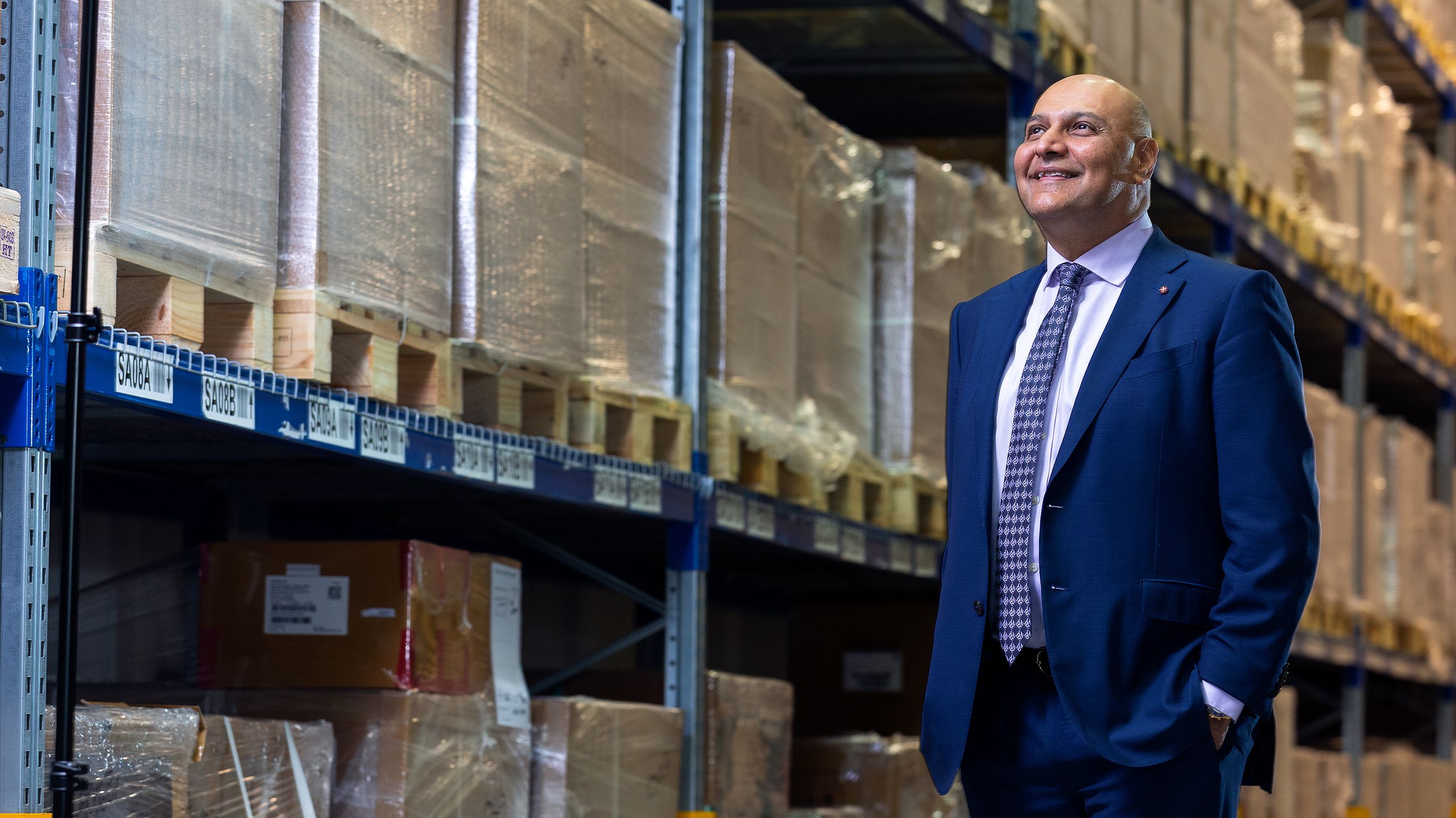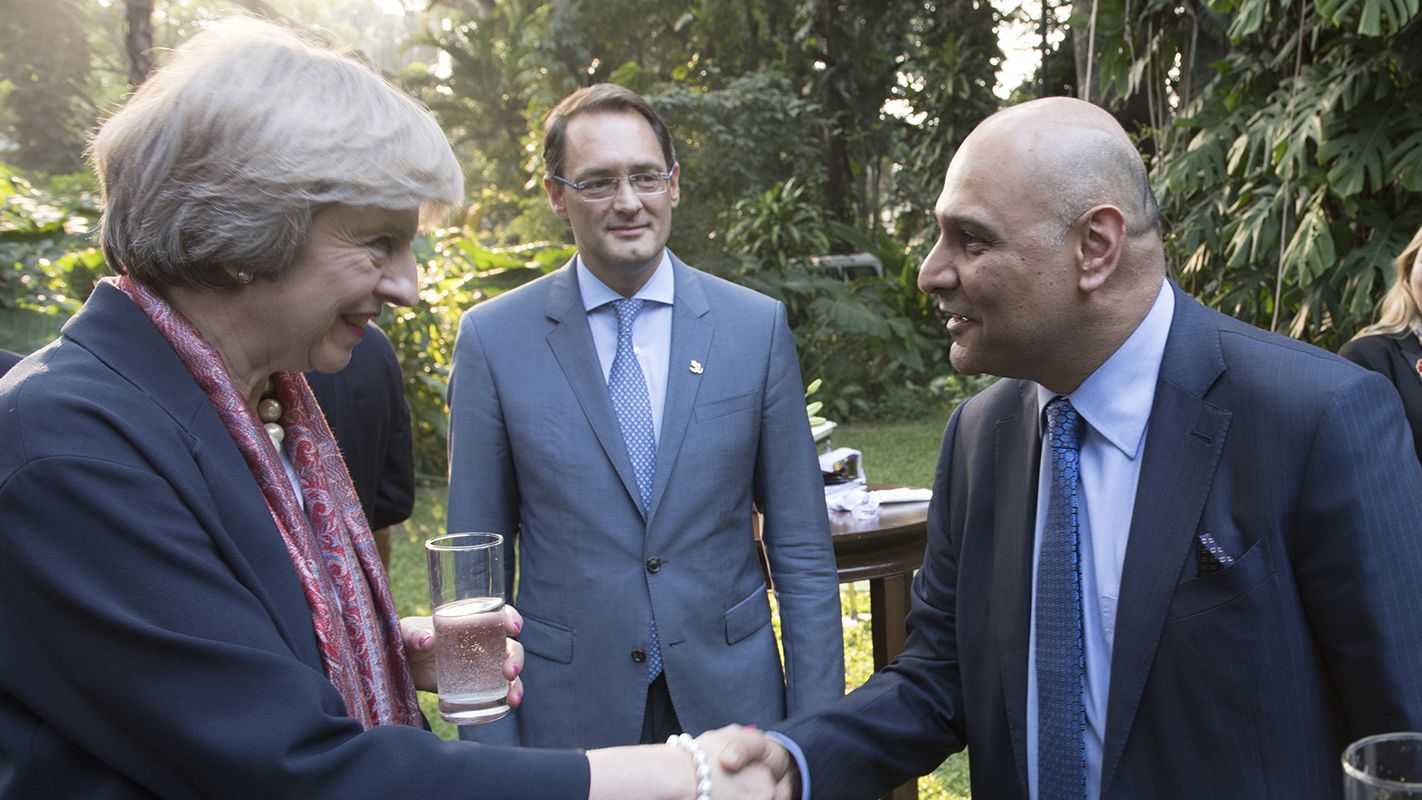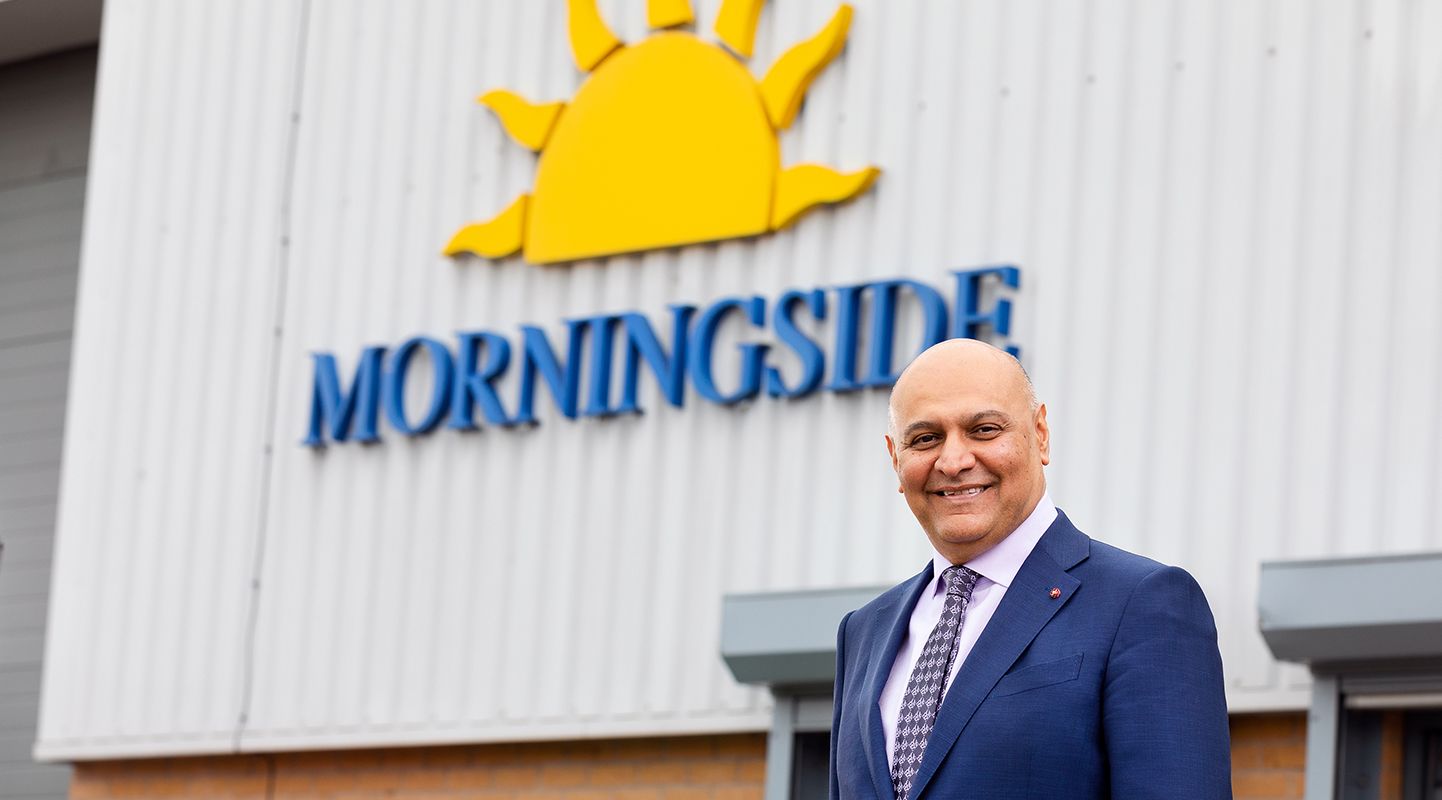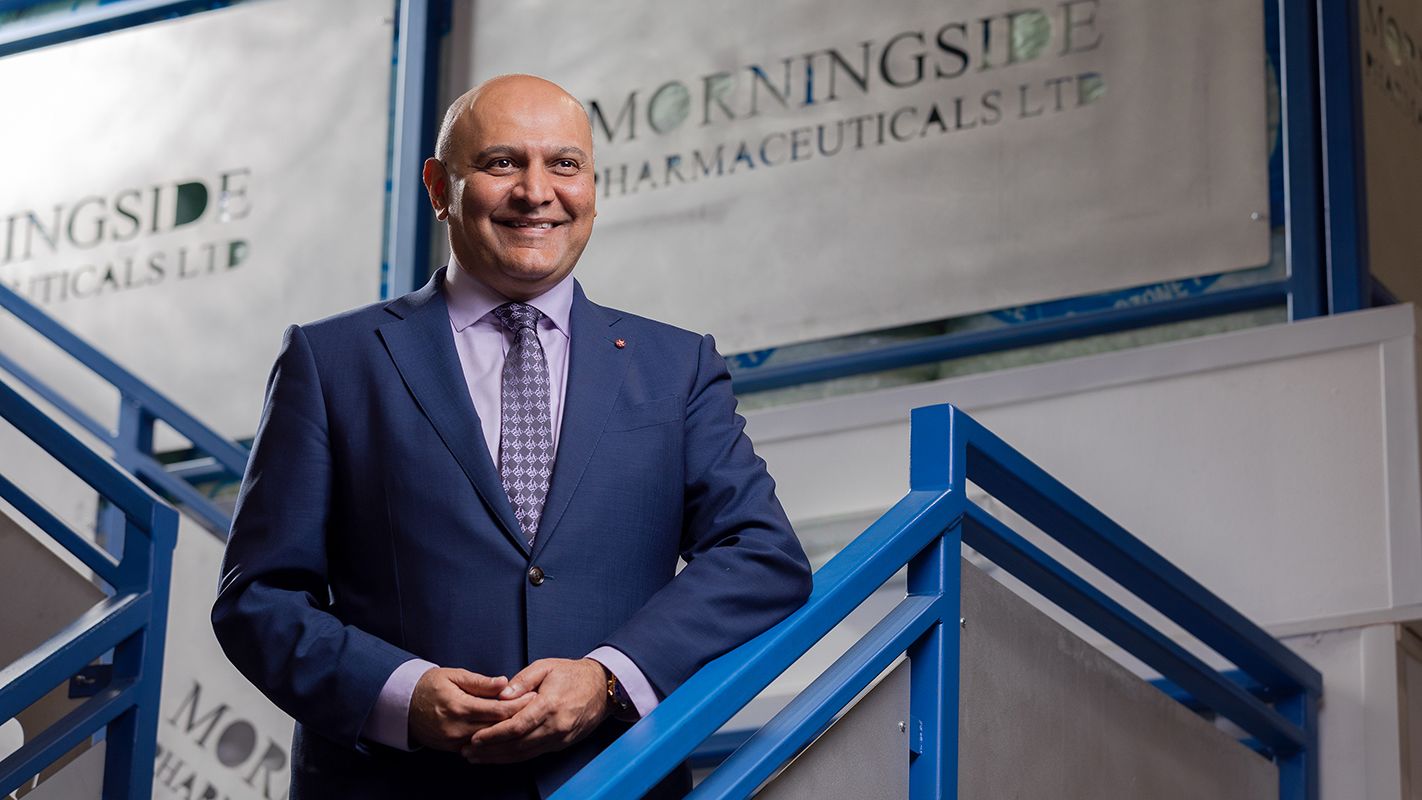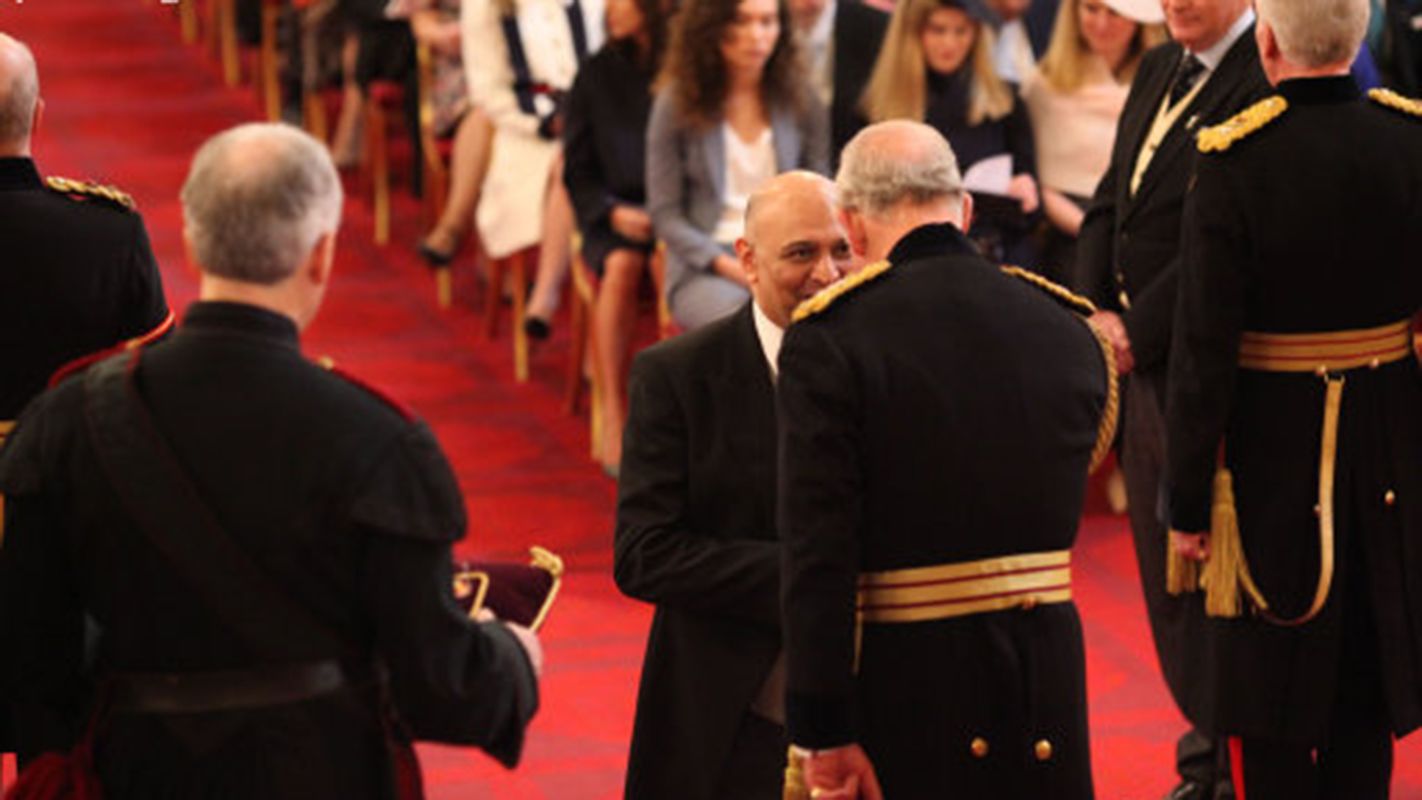Dr Nik Kotecha OBE
As a young man, Dr Nik Kotecha had a dream: to make quality healthcare an affordable and accessible reality throughout the world. In 1991 he founded Morningside Pharmaceuticals from a home garage, after realising there was a need to supply high-quality medicines into the developing world.
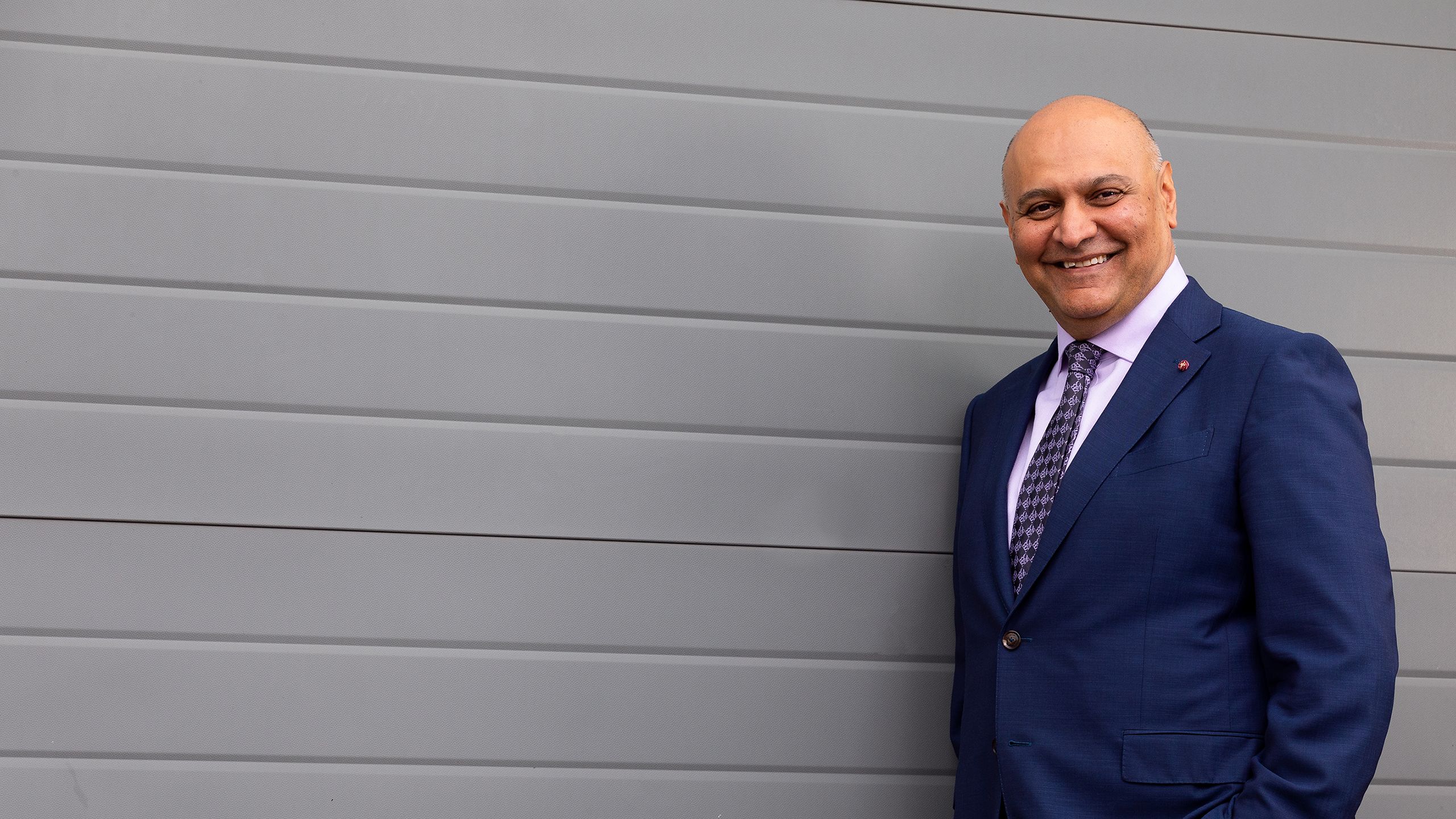
“At that time, there were lots of poor quality and counterfeit medicines with no regulatory control,” he explains. “But we had high quality medicine in the UK, a fantastic regulator and stringent standards. So I thought of a business model where I could buy medicines from the UK and export them to developing countries.”
Turning his home garage into an office, Nik started out with a fax machine and a phone. “In the early 90s, the internet didn’t exist. I’d spend the early mornings and late evenings around my day job ringing embassies around the world, asking if they had importers and distributors of medicines in their country whom I could speak to. I contacted Commonwealth countries as I thought they would understand the high British standards. I’d contact importers and build a trading business where I could supply them with quality UK licensed medicines and medical devices.”
Personal experience
Nik’s early life experiences gave him a first-hand account of the challenges developing countries were facing. “I came to the UK as a refugee from East Africa as a young child. I will forever be thankful for the support my family received from international aid, including the Red Cross, which inspired me to want to support these organisations in later life. Once we settled in Leicester, I had to work harder than most because I started to learn English at the age of six or seven.”
“In the mid-90s, I went on a trade mission to the United Nations (UN) in New York, where I got to understand how they procure medicines, and then started a business relationship with the UN and organisations like UNICEF, UNFPA and WHO. Later Morningside went on to work with the Red Cross and lots of leading non-governmental organisations; making quality healthcare an affordable and accessible reality in those developing countries. It’s something we proudly still do today, around the world.”
Passion and purpose
During challenging times, Nik says it's passion that keeps him going, as well as a keen focus on innovating, investing in research and development and continuous improvement. This led to the Morningside companies expanding into the UK market by taking a pioneering approach to using novel technology to launch new formulations of niche generic and branded medicines.
“I don’t do things half-heartedly. Through innovation, we have developed new ways for patients to take their medicines, designed to make their experience easier. Our branded generic medicine ranges also save the NHS millions of pounds each year.”
When you have a passion, you'll have a purpose. And you can build your career from that purpose and meet any challenge.
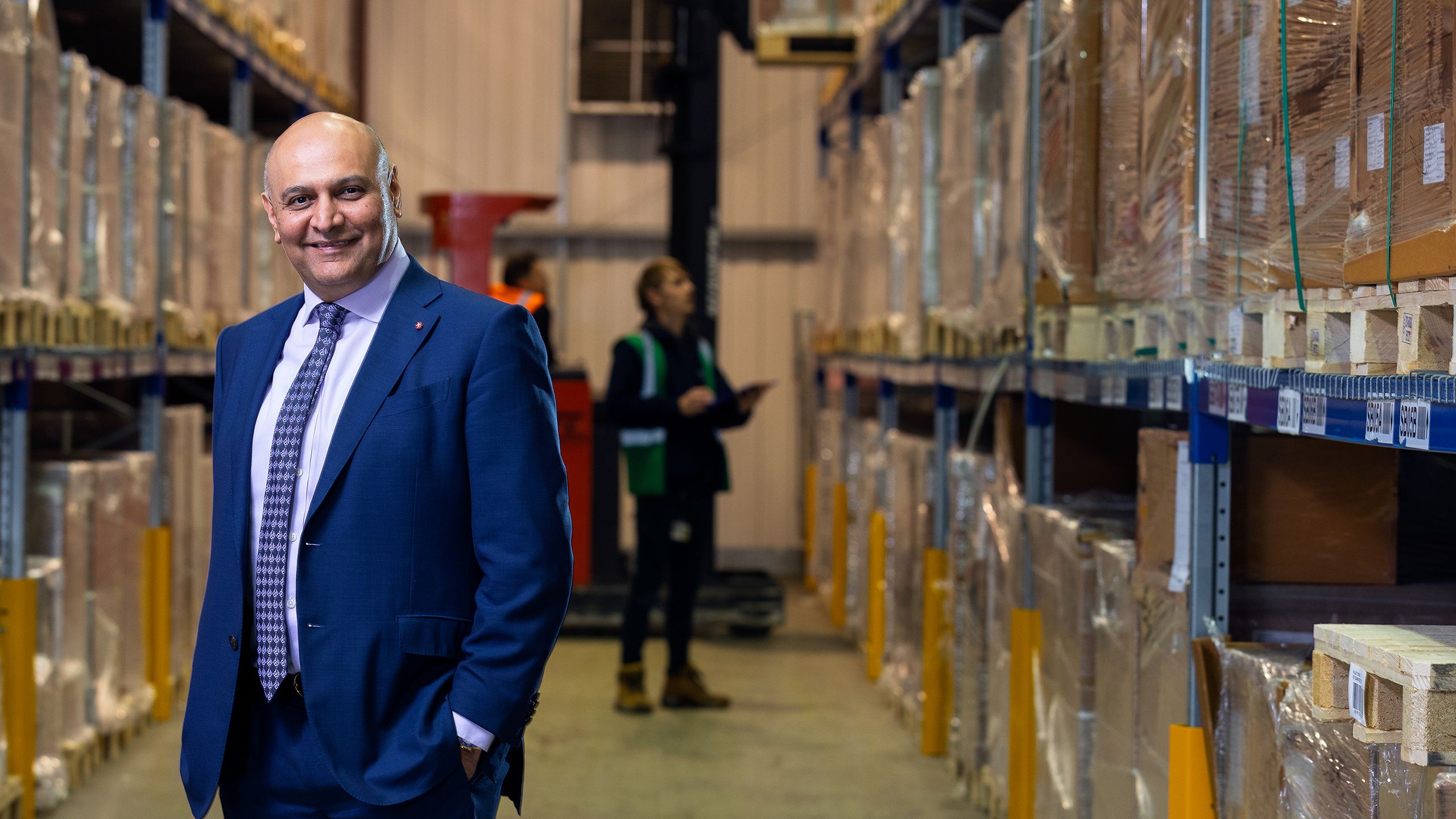
Philanthropy
Nik and his wife Moni founded the Randal Charitable Foundation in 2017, with the aspiration of directly saving one million lives around the globe. “That comes from my 30 years of seeing challenges in the developing world and in the UK,” he explains. “We look at opportunities around the world where we can save lives by providing grant funding. It could be in hospitals, with ambulances or water sanitation projects. People are dying because they can't get clean water or basic healthcare, communities are trapped in a seemingly never ending cycle of poverty because they don’t have the basic tools or infrastructure to earn money and resources to look after their families."
International work
One of the Foundation’s international projects involved working with the British Asian Trust during the COVID-19 pandemic to feed 137,000 people leaving the cities for their rural homes. “A lot of workers in India live on a daily wage,” Nik says. “They go there to work for a short time, get paid on a daily basis and then move on to the next location. When COVID-19 lockdowns struck, they couldn’t do that kind of work anymore. Many had to walk 400 kilometres from Mumbai to their homes, because they couldn’t afford public transport fares. And people were dying on the roads. They were sending money back to their families as well, because they were also reliant on that money for their survival.”
Meeting the UK's former Prime Minister Theresa May
Meeting the UK's former Prime Minister Theresa May
The Foundation also funded the building of an oxygen generator at a 550 bed Indian Hospital, providing sustainable oxygen to treat patients during and after the pandemic. “It’s heart-breaking, they couldn't get the oxygen cylinders from one place to another because of lockdowns,” Nik explains. “So I had an idea. Every hospital has an electric generator. They should also have an oxygen generator because they need oxygen for fighting all types of respiratory diseases, not just COVID-19.”
Tackling mental health and addiction
The Foundation’s work doesn’t just happen overseas. There are still plenty of challenges in the UK, with mental health being a particular focus for Nik and the Foundation. “We've just launched a programme around loneliness and isolation, and how young people are suffering. We’ve worked in partnership with the Prince's Trust and suicide charities like Papyrus and Shout 85258 to see how we can raise awareness, and how we can help young people face some of those challenges.”
We created a loneliness video that I think is really hard hitting. Loneliness is something that people don't see. We go out and get on with our lives. And whether it be in business or our social life, a lot of people feel lonely deep down.
“We've seen cancer, we've seen diabetes, obesity, heart disease. Mental health illness is the challenge for the next 10 - 20 years. It’s a ticking bomb. Addiction is another big challenge. The Foundation also supports causes that help those suffering addiction and their families.”
Learning from business
Nik describes himself as an advocate for the third sector. But he says there are many ways that businesses can help charities. “There's so much knowledge we learn through business and becoming leaders. And the charitable sector has a difficult model. They spend 12 months raising money, spending the money on great causes, and then it starts again.”
Businesses can play a part in helping charities become entrepreneurial in the way they raise funds “So they're not stuck in this cycle of raising and spending money. We saw lots of charities get into trouble during COVID-19 because they couldn't do the fundraising and put on the events they used to.”
There needs to be a much closer link between business and the third sector, working together and supporting each other.
“And that's something I've tried to build in my business where we are helping charities. It's not only about giving money. It's about our time or knowledge, which is sometimes more important.”
Charities have great lessons for businesses too. “It’s their motivation, the way they work, the passion they have. There’s a lot business can learn from charities.”
Transferable skills
Nik studied medicinal chemistry in Newcastle. He gained a First Class degree, before achieving his PhD from Imperial and completing further work at the University of Cambridge. After spending such a long time engrossed in one subject, it can seem like we no longer have any other career options. But Nik says it doesn’t have to be this way.
“When you're researching something deeply, you think this is the only thing in the world. You think there's not many choices for you. You think, ‘Well, I've got to work with a pharmaceutical company or in aerospace or engineering, because that's what I studied.‘”
Nik receiving his OBE from HRH The Prince of Wales
Nik receiving his OBE from HRH The Prince of Wales
But any education comes with transferable skills. “The most valuable lessons I learned from my PhD weren’t only in medicinal chemistry, but in work ethics, in report writing, in timekeeping and logical thinking. The way I managed my work. It’s all valuable later in life. I studied a pure science and then went off and started a business which has exported to over 120 countries since inception.”
“Those skills are still valuable to me today. I learned them through communicating with people and getting involved in communities. All those softer skills come into it, so keep your options open. These are incredible skills you're learning at university, and they can lead to whatever you want to do as long as you have the right passion and dedication to succeed.”
Time for yourself
Nik believes life shouldn’t just be all about work. “Try and take time out. Because you can be so focused, and I definitely was. And those are very important years. You feel you have this opportunity and that you've got to try and take it now. But be measured, focussed, work hard, and be passionate about what you do. And take time out for yourself and your family.
When asked what his legacy will be, Nik said “I think it’ll be what I do in the next 10 - 20 years.”
Hopefully, when I'm not here somebody will say ‘That Nik Kotecha made a difference. He helped people, communities and saved lives.'
Follow Nik's story:
